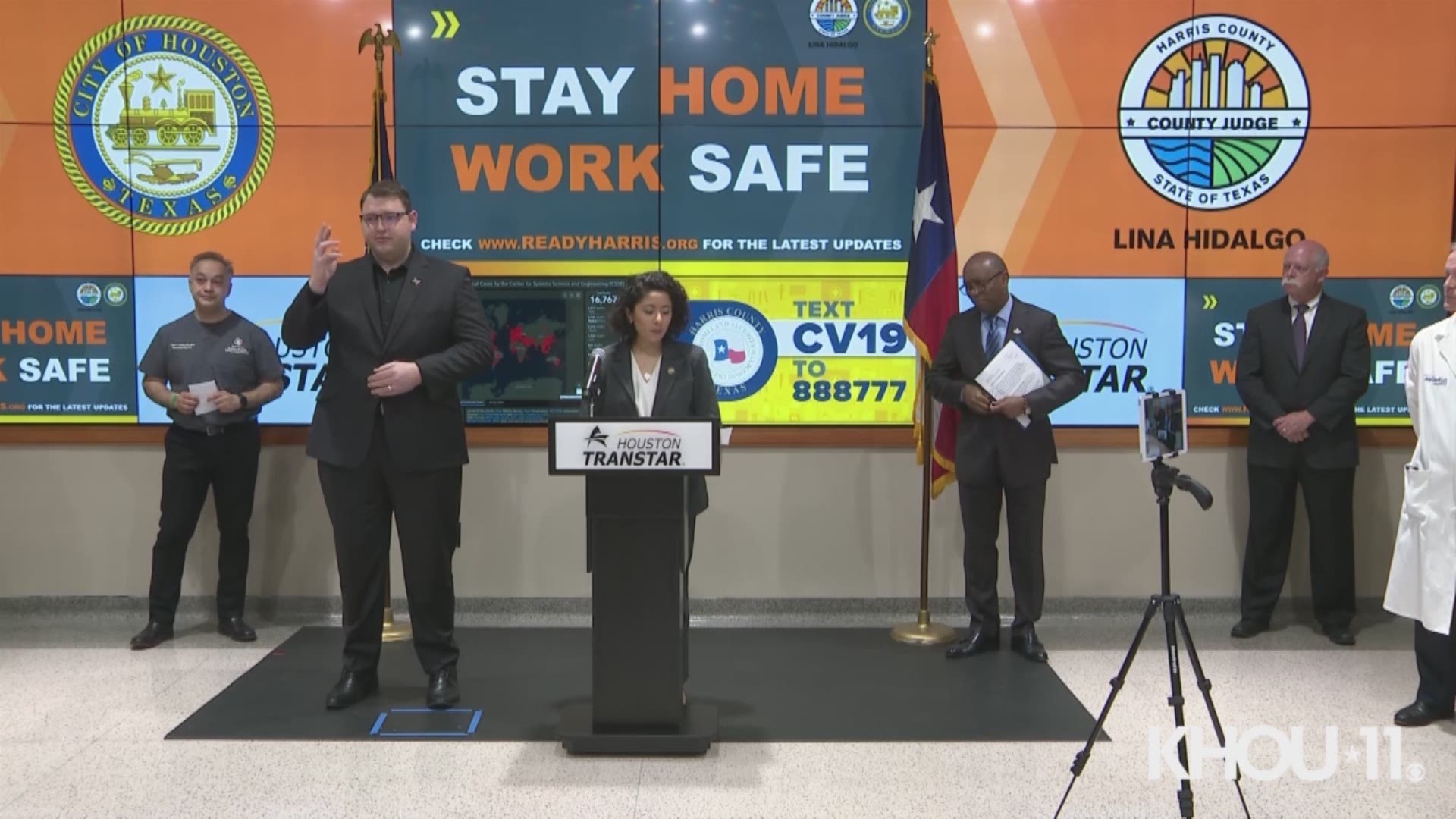HOUSTON — Nearly 200 people in the Greater Houston Area have been diagnosed with the coronavirus and several are under age 50.
While older people and those with underlying health conditions are still considered at greater risk of becoming seriously ill from COVID-19, dozens of people under age 40 have it. A few of them have been hospitalized.
“The trends that we are seeing is there are a number of individuals, in fact a significant number of individuals, that are not in the older categories of individuals in our communities who are testing positive for Covid 19,” said Dr. Umair Shaw, the Harris Health Executive Director.
Dr. Shaw said it’s an important reminder that anyone can get coronavirus and put their loved ones at risk by spreading it.
“All of us in our community have the potential for getting infected and all of us in our community have the potential of transmitting it to others."
Dr. Shaw said they’ll keep an eye on the patterns and they may shift over time.
Current breakdown by age
(as of March 23)
Age 0-10: 4
Age 10-20: 3
Age 20-30: 26
Age 30-40: 15
Age 40-50: 43
Age 50-60: 43
Age 60-70: 25
Age 70-80: 10
Age 80-90: 1
Age 90-100: 2
(The ages of 16 people weren't given)
Coronavirus symptoms
The symptoms of coronavirus can be similar to the flu or a bad cold. Symptoms include a fever, cough and shortness of breath, according to the Centers for Disease Control.
Most healthy people will have mild symptoms. A study of more than 72,000 patients by the Centers for Disease Control in China showed 80 percent of the cases there were mild.
But infections can cause pneumonia, severe acute respiratory syndrome, kidney failure and even death, according to the World Health Organization. Older people with underlying health conditions are most at risk.
The CDC believes symptoms may appear anywhere from two to 14 days after being exposed.
Human coronaviruses are usually spread through...
- The air by coughing or sneezing
- Close personal contact, such as touching or shaking hands
- Touching an object or surface with the virus on it, then touching your mouth, nose or eyes before washing your hands.
Help stop the spread of coronavirus
- Stay home when you are sick.
- Eat and sleep separately from your family members
- Use different utensils and dishes
- Cover your cough or sneeze with your arm, not your hand.
- If you use a tissue, throw it in the trash.
Lower your risk
- Wash your hands often with soap and water for at least 20 seconds. If soap and water are not available, use an alcohol-based hand sanitizer.
- Avoid touching your eyes, nose, and mouth with unwashed hands.
- Avoid close contact with people who are sick.
- Clean and disinfect frequently touched objects and surfaces.
- If you are 60 or over and have an underlying health condition such as cardiovascular disease, diabetes or respiratory illnesses like asthma or COPD, the World Health Organization advises you to try to avoid crowds or places where you might interact with people who are sick.
Get complete coverage of the coronavirus by texting 'FACTS' to 713-526-1111.

